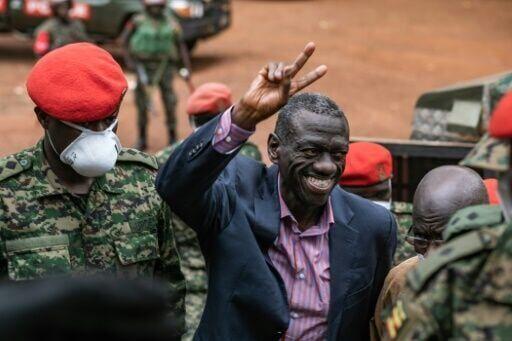Kizza Besigye, a retired army colonel and prominent opposition figure in Uganda, has denied accusations made against him during a military court appearance. Besigye, 68, who has long been a vocal critic of President Yoweri Museveni, asserts that as a civilian, he should not be tried in a military tribunal.
His arrest has sparked international condemnation, particularly after the Ugandan opposition leader was abducted from Nairobi, Kenya, and transferred to Uganda. On Friday, a Ugandan government spokesperson, Chris Baryomunsi, confirmed that both Uganda and Kenyan authorities were aware of the arrest and subsequent transfer of Besigye to Uganda. He emphasized that it would have been impossible for the arrest to happen without Kenya’s involvement, noting the extensive intelligence-sharing between the two countries.
The Ugandan government insists that the arrest was part of extradition agreements between the two countries, but Kenya’s foreign ministry has distanced itself from the incident, calling it “regrettable” and promising an investigation. Besigye’s lawyer argues that he should not face military trial, pointing out that Besigye has been a civilian since his retirement.
The prosecution charges Besigye with possessing two pistols and allegedly soliciting support from foreign entities, including Greece, with the intent to undermine Uganda’s national security. Besigye has vehemently denied these allegations.
Bobi Wine, leader of Uganda’s opposition, visited Besigye in prison and described him as being in “good spirits.” He condemned the actions of the Ugandan government, and urged Kenya to take steps to prevent similar incidents in the future.
The incident follows a broader crackdown on opposition figures in Uganda, which has seen several political opponents arrested and tried on charges ranging from terrorism to illegal immigration. Rights groups, including Amnesty International, have expressed concern, warning that this incident is part of a larger, worrying trend of “transnational repression.”
